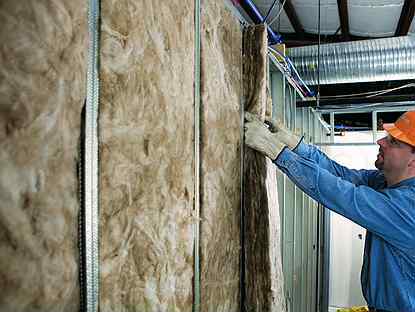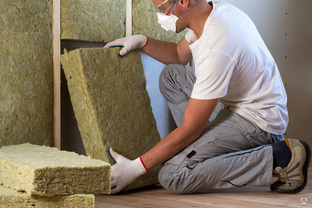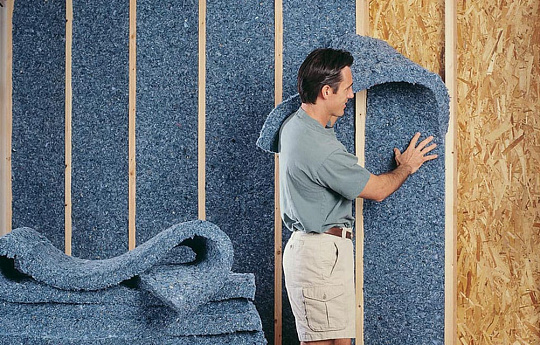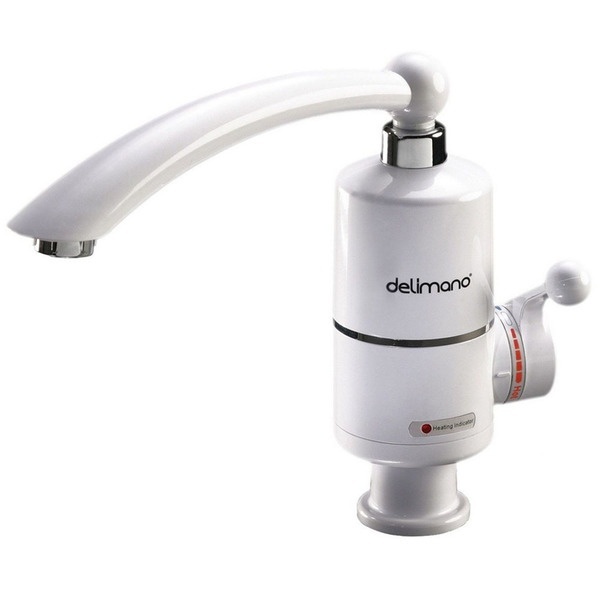The building materials market is rich in an assortment of insulation materials. Therefore, the choice in favor of one or another heat insulator is not easy to make. We decided to help you with this and have compiled a rating of wall insulation, which included the most demanded materials combining high quality, excellent heat retention and democratic cost.
Also, the review justifiably included some relatively expensive products due to their brilliant thermal insulation characteristics, which fully justify the cost.
How to insulate the walls of a house or apartment?
First of all, it is necessary to decide on which side the insulation will be carried out: external or internal. Private houses, especially those erected from scratch, are usually insulated from the facade, but in the case of an apartment, everything is not so simple.
From the street side, as a rule, insulation is carried out by utilities or management companies. Moreover, the entire apartment building is insulated at once. This is not always the case, but in most cases.

Note! If the owner decided to insulate his apartment on his own initiative, then the insulation will most likely have to be installed from the inside.
This is especially true when the housing is not located on the first floor or the whole house as a whole belongs to architectural monuments and it is simply forbidden by law to modify its facade.
When it was possible to decide on the option of insulation, you should choose the material. Below we will help you with this, but for now we will briefly consider the stages of the work, assuming that the insulation has already been purchased. We will describe the technology using the example of expanded polystyrene plates, which are often used in heat-insulating works.
So, in the case of insulating the walls of an apartment from the inside, it is necessary to act according to the following principle:
- Prepare the wall by removing dirt and dust. If wallpaper is pasted on the surface, then it should be removed. If there are tiles on the walls, then it will have to be completely dismantled;
- It is permissible to leave only the plaster (do not beat it off);
- The next step is to mix the adhesive with a mixer. To do this, you must mix the dry mixture with water in the proportions indicated on the label;
- After kneading, you can start applying glue to the first sheet of expanded polystyrene. In this case, the layer should be thin - about 10 mm;
- Spread the compound evenly over the entire surface using, for example, a spatula, trowel or any other suitable tool;
- Stick the sheets in a checkerboard pattern, like brickwork;
- After gluing, fix the sheets with umbrellas and a dowel of nails;
- On top of the expanded polystyrene, mount a reinforcing mesh, which will significantly increase the adhesion of the insulation with the plaster mixture applied subsequently;
- Plaster the surface over the mesh. And after the coating has dried, you can safely proceed to the finishing. The plaster will dry for at least 48 hours.

Review of the best manufacturers: TOP 5 market leaders
All current manufacturers of thermal insulation materials are countless. Moreover, both among domestic brands and foreign ones. It is easy to get confused in such a variety. Well, if we consider in detail each of the possible options, then the process of choosing a heater will take too much time.
That's why we've put together the best manufacturers you can truly trust. They have earned their reputation in the market for high quality products, optimal prices and flattering reviews from consumers.
So, the following manufacturers are among the market leaders:
- Rockwool. This is a Danish brand that has production in Russia. High-quality basalt insulation made from molten rocks is produced under this brand. This, of course, is not the only type of material produced by the brand. However, the company specializes in it. Rockwool thermal insulation is renowned for its excellent heat retention properties, resistance to fungi and microorganisms, environmental friendliness, long service life and ease of installation.
- TechnoNIKOL. This manufacturer produces different types of insulation that are suitable for thermal insulation of various rooms, buildings and individual locations. Under the brand name "Technonikol", ordinary and extruded polystyrene foam is produced, as well as basalt wool, which is in special demand. Both heaters are famous for their excellent characteristics, among which consumers single out 2 of the most important: the materials are really capable of retaining heat and preventing the penetration of cold.
- Knauf. This brand is more expensive in comparison with the two manufacturers described above. But this does not prevent her from occupying an honorable leading position in the ratings of brands that produce thermal insulation materials. Under the brand name "Knauf" are produced mainly heaters for private housing construction, which can rightfully be called universal. For example, the “TeploKNAUF Cottage” material can be used to insulate the roof, floors and, of course, walls. In addition to the ability to retain heat, Knauf heaters also have steam and sound insulation properties. In general, choosing materials of this brand, you can have no doubt about the quality and functionality.
- URSA. The materials produced under this brand are suitable not only for thermal insulation of walls, floors, attics and roofs, but also for heat insulation of communications. And URSA heaters do an excellent job of soundproofing. The most popular products of this brand are fiberglass and polystyrene foam heat insulator. Both of them are in demand among consumers who leave very flattering reviews.
- Isover. This manufacturer produces the most budgetary materials in comparison with all of the above poppies. However, this does not at all indicate the low quality of the products, but rather the opposite. Isover heaters are characterized by the presence of all the properties that a good heat insulator should have. The materials produced under this brand stand out for their waterproofness, long service life, ease of installation, resistance to fire, pests and fungi, environmental friendliness and excellent ability to keeping warm.
Rating of high-quality insulation for walls for 2021
In the rating of heaters for the walls of a frame house, apartment, brick or block structure, we included materials suitable for both external and internal thermal insulation. After reading our review, it will be much easier for you to make a choice in favor of certain products.
Stone wool TechnoNIKOL Rocklight
This material is a panel product that is fire resistant, waterproof and has excellent heat retention properties. Stone wool "TechnoNicol Rocklight" is made from raw materials of rocks and specialized additives.
Plates are available with a thickness of 50 or 100 mm. Their density varies in the range from 30 to 35 kg / cm3. The thermal conductivity coefficient is 0.039 W / m C, and the vapor permeability is 0.3 pph. Pa. Moisture absorption does not exceed 2%, which is a very good indicator.
Stone wool Rockwool Sauna Butts 1000 × 600x50mm 8 pieces
In the rating of heat insulators for walls, we also included the material used mainly for cladding baths and saunas. This is the Sauna Butts stone wool from the well-known Rockwool brand. These products, due to their main purpose, are distinguished by good resistance to high temperatures. Also, the products perfectly resist moisture, fire and fungus.
On one side, Rockwool basalt wool is covered with aluminum foil. it helps to reflect the flow of heat into the room, providing a higher temperature in the room.
Glass wool Isover Warm House
The rating of wall insulation includes another universal thermal insulator, suitable for strengthening roofs, attics, internal and external walls, as well as partitions and ceilings. And this - glass wool "Warm House" from the domestic company "Isover". It is a slab product made from mineral wool, which is made from environmentally friendly and harmless to humans and the environment components. It is noteworthy that these products are allowed to be used even when insulating preschool and medical institutions. And that says a lot.
Glass wool from "Isover" differs in incombustibility, moisture resistance, bio-stability, light weight and relatively good strength. According to consumers, it is easy to install and has a long service life.
Glass wool URSA Terra
Insulation "URSA Terra" stands out among competitors by one of the best heat capacity indicators in its class. Also, the material is characterized by a long service life of up to 50 years. serves for about 50 years. Glass wool from URSA has all the necessary properties inherent in high-quality and high-performance insulation. It is moisture resistant, plastic, moderately elastic, not afraid of mold and mildew.
TechnoNIKOL XPS Technoplex
Extruded polystyrene foam from Technoplex is used for thermal insulation of a wide variety of substrates. It can be: foundation, roof, floor, walls. With the help of the material in question, even pipes, as well as other communications located in residential and industrial premises, are thermally insulated.
XPS extruded polystyrene foam is highly durable, durable and resistant to external influences such as wind, frost, heat, snow or rain. That is why it is perfect for insulating the facade of a private house or a multi-storey building, which is what builders use.
Penoplex Comfort
"Penoplex Comfort" is a high strength polystyrene foam board. Due to the special production technology and the peculiarities of this type of material in general, the products are distinguished by their good ability to retain heat.
Moreover, "Penoplex Comfort" provides good sound and vapor barrier. At the same time, it is resistant to moisture and does not rot. Also, the material is characterized by non-flammability, resistance to pests, rodents and fungi. In general, a heat insulator is what you need!
Knauf Therm House
This is a heat insulator, which can rightfully be called one of the best. It is presented by the manufacturer as an ideal insulation for private houses, but it can be used almost everywhere, anywhere. With the help of this material, you can insulate: walls, floors and ceilings in residential buildings, as well as basements, garages, cellars and other utility rooms.
Such versatility of products is directly related to their properties, which boil down to: high moisture and biostability, non-susceptibility to rotting and fungal infection, environmental friendliness, fire safety, lightness and excellent strength.
By the way, Knauf insulation is capable of withstanding loads of up to 7 tons. And, you see, this is a decent indicator.
Shelter EcoStroy SHES Arctic
This heat insulator is based on polyester fibers, which are glued together at the production stage without the participation of chemical compounds. As a result, an environmentally friendly insulation material is obtained at the output, suitable for thermal insulation of almost any premises, including children's educational and medical institutions.
The company "EcoStroy" is domestic. She cannot be called an exceptional and indisputable leader. However, the popularity of its products leaves no doubt. Consumers are eager to buy “ShES Arctic”, as evidenced by the huge number of positive reviews on various thematic sites.
Penofol 2000
Penofol 2000 is a reflective type of thermal insulation consisting of polyethylene foam and aluminum foil. The first component provides heat capacity, while the second one performs a reflective function. As a result of the "work" of both components, the insulation is able to effectively retain heat. It also perfectly insulates the premises and creates a favorable microclimate.
Penofol 2000 is easy to install. It is characterized by low weight, optimal density and, which is important, democratic price.
Liquid thermal insulation Altermo Standard
Liquid thermal insulation "Altermo Standard" is a modern thermal insulation material with a high heat capacity. However, it is able not only to keep the room warm, but also to resist the development of fungus, mold and parasites in it. The latter is achieved due to the content of acrylic additives in the composition, which have an antiseptic effect. In addition to all of the above, it is also worth noting the moisture resistance of this thermal insulation, fire safety and a long service life. And also - excellent sound insulation properties and the ability to vapor barrier.
In appearance, the liquid thermal insulation "Altermo" resembles a thick water-dispersive white paint. To use the suspension, it must be applied to the surface with a brush or by using a spray. It is noteworthy that, according to the manufacturer, 1 mm of this insulation is equivalent in terms of thermal insulation properties to 5 cm of mineral wool. Perhaps this fact will seem incredible to someone, but, in fact, it is.
The only drawback of "Altermo" is the high price, which often scares off potential buyers.
Fiberboard GB-600
This material belongs to the category of decorative and acoustic. It has excellent sound insulation properties, for which it is especially appreciated. However, the material is just as good as a heat insulator. It does an excellent job of keeping warm in almost any type of room.
Fiberboard boards are 60% wood. The remaining 40% is represented by binders and various additives. The latter provide sealing and good waterproofing. But the main advantage of the material, nevertheless, is its excellent sound insulation.
How to choose insulation for walls
To select the optimal material, the buyer should consider the following:
- Coefficient of thermal conductivity;
- The ratio of density and heat capacity;
- Specific weight of products;
- The type of room that needs to be insulated and its main characteristics, such as: the level of humidity, the purpose of the room, the average daily temperature, the material of the walls;
- The presence of additional properties of the material in addition to thermal insulation, which is important if the room additionally needs, for example, steam and / or sound insulation.
It is also impossible not to take into account the cost, because the financial component is no less important. The main thing is not to overdo it with savings, so that in the future you do not have to part with even larger amounts.
On a note! As for the ratio of the type of thermal insulation and the type of premises, most of the options listed in our publication are are characterized by versatility, therefore they can be used both outside and inside buildings and premises for various purposes.

Expert advice
Insulating walls in an apartment or in a house is not enough to obtain an effective result. Compliance with installation technologies is, of course, a prerequisite, but it will be of little use if an unsuitable or low-quality insulation was chosen.
Home craftsmen, who do not have experience and knowledge in the field of thermal insulation, often make mistakes when buying material. Therefore, we have put together useful tips for you to help you avoid them. They boil down to the following:
- Saving is not bad and even good, but only if it does not affect the quality. Remember that if the heat-insulating material costs much less than analogs, then this fact should make you suspicious. Ask the seller to show you the quality certificates for the products. And if he refuses to do this, then the purchase of the material should be abandoned.
- Don't buy handicrafts. Some entrepreneurs and small producers make materials almost in their backyards. Due to significant savings in funds required to finance the production process, such heaters will be cheap, but their properties will not be and cannot be any documents be confirmed. Remember that handicraft production is not controlled or regulated by anything or anyone. Therefore, think carefully before you buy material made from nowhere.
- Be aware that the density of the insulation is not as important as the coefficient of thermal conductivity. Moreover, the heat capacity costs depending on the density indicators. The higher the latter, the smaller the former. Therefore, do not be afraid of low strength values.
- Remember that versatile materials are always less effective than highly specialized materials. But in the case of heaters, this does not apply at all to the possibility of using thermal insulation products in different types of premises. We are talking about a set of properties, such as a combination of: noise, steam, thermal insulation together with moisture resistance and its simultaneous absorption, creating a comfortable microclimate, and so on. That is, it is better if the insulation is focused on something more than the rest. Then the desired effect can be achieved with a more pronounced
Consumer reviews about wall insulation from different manufacturers
The most flattering reviews from consumers are mineral wool and expanded polystyrene, which is understandable. Firstly, these materials differ in their affordable cost, and secondly, they do a fairly good job with their thermal insulation functions. Moreover, depending on the manufacturer, the above-mentioned products may have additional properties, such as: sound and vapor barrier, protection against mold and mildew.
Liquid insulation is used much less often, which is justified by its relatively high cost. However, those who nevertheless decided to spend money on the purchase of this material were satisfied. Consumers write about the material's ability to provide excellent waterproofing, heat retention and sound absorption. But we could not find dissatisfied buyers. Apparently, liquid insulation is really worth the money.
Instead of a conclusion
At the end of the article, I would like to repeat once again that there is no need to rush when choosing a material. Believe me, high-quality material is already half the success of future thermal insulation, so it's better to spend time now than incur extra costs later.


